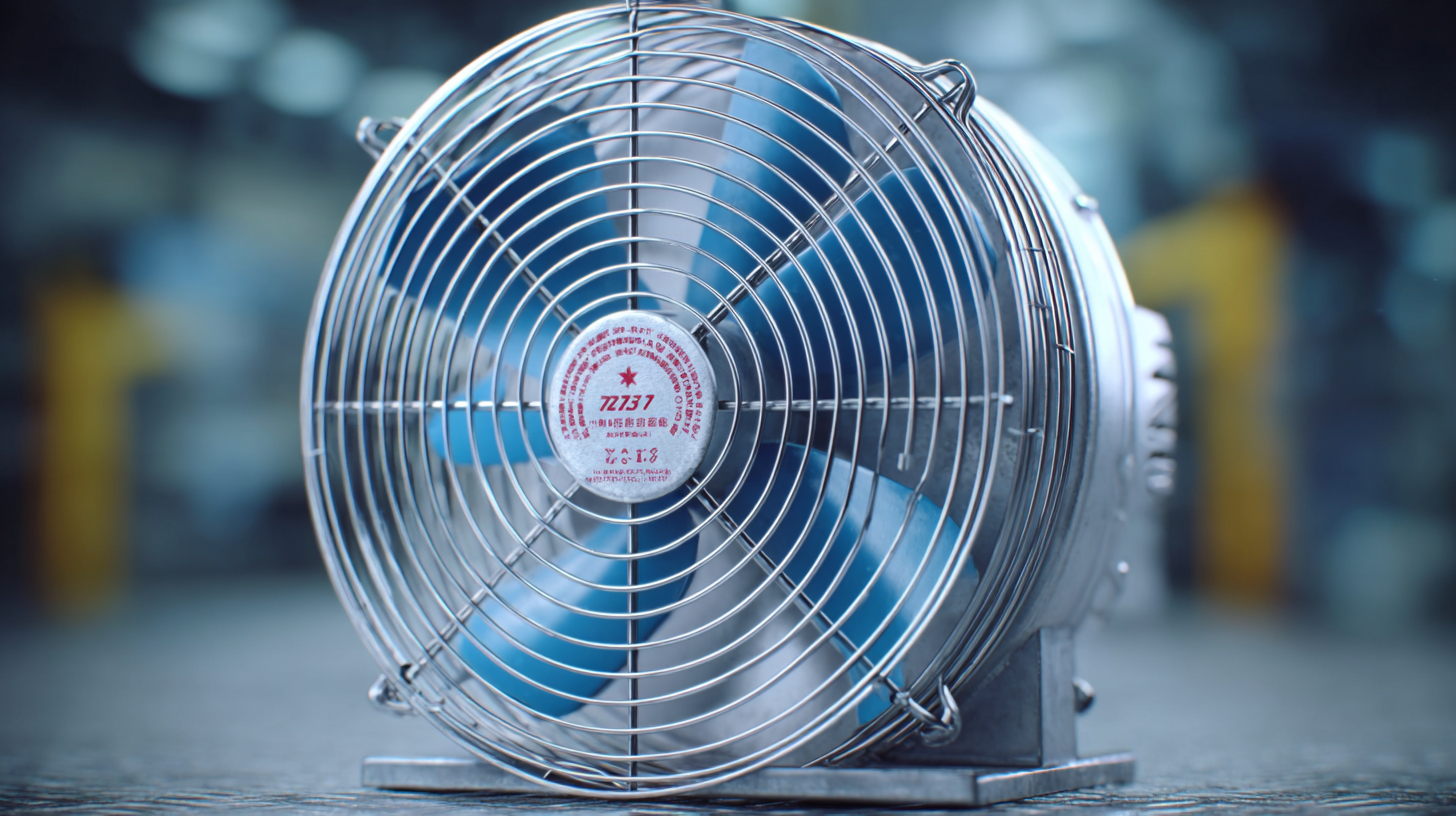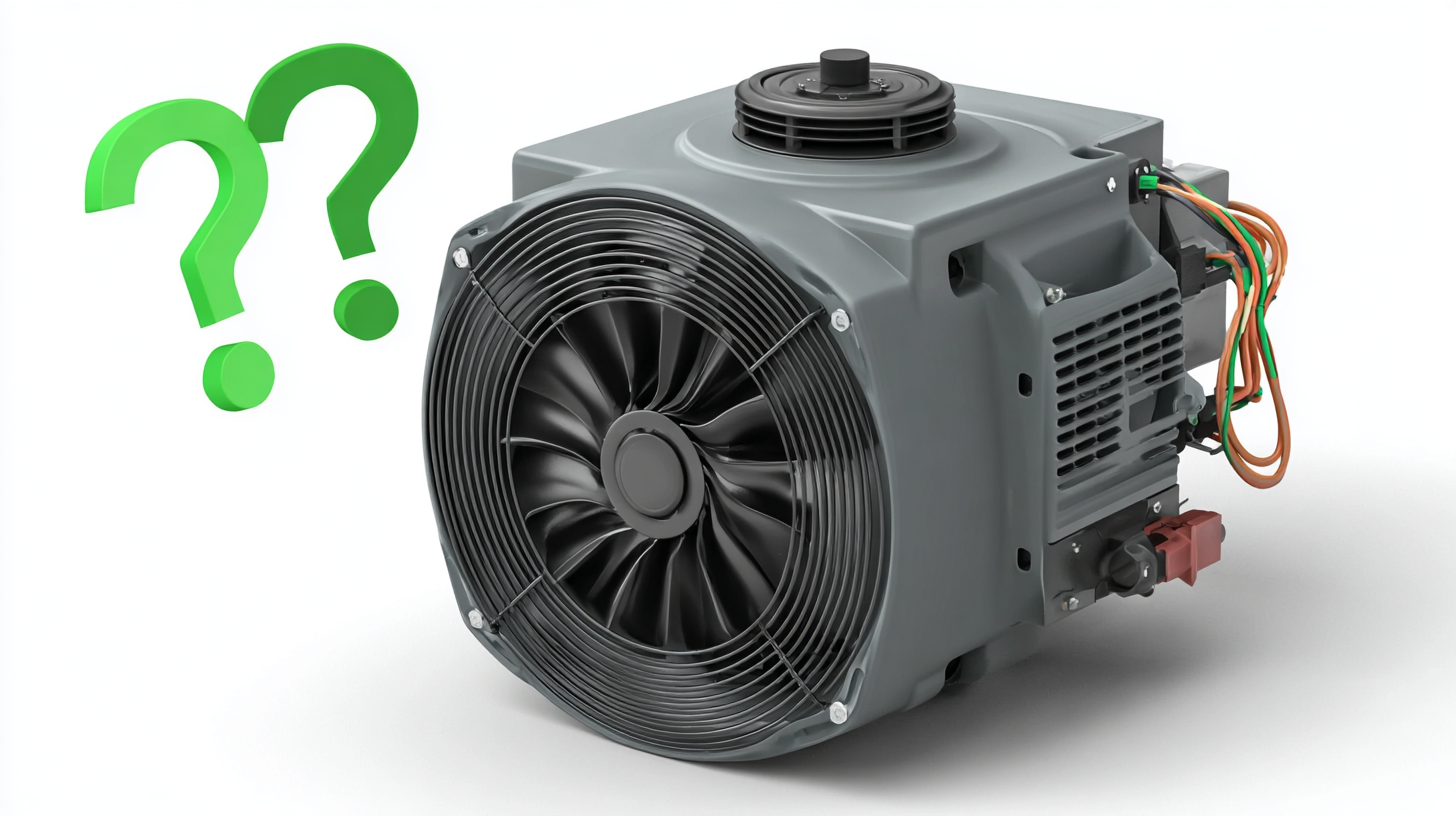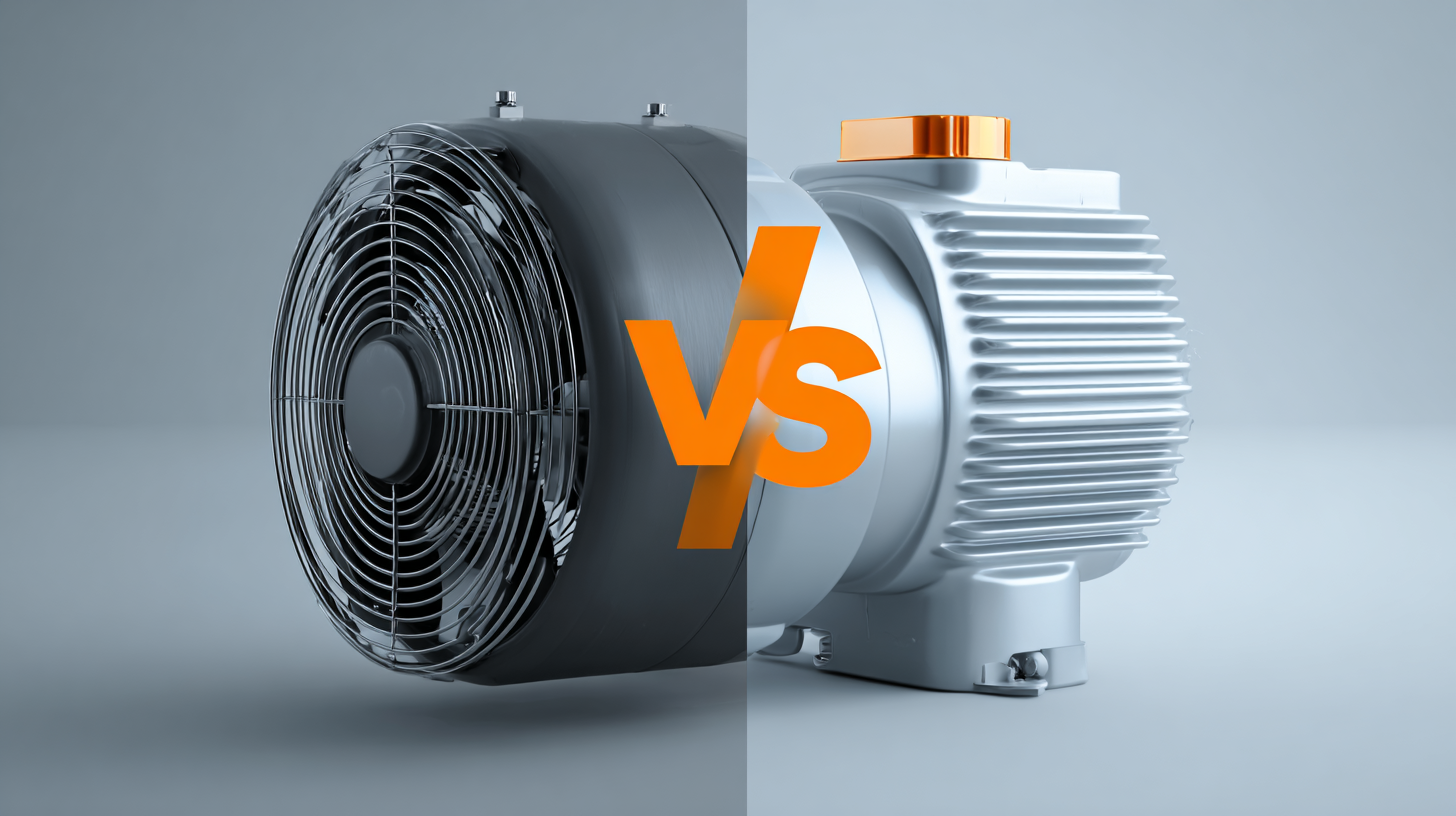




As we venture into 2025, the HVAC industry stands at a pivotal juncture marked by rapid advancements and growing consumer demands. Among these developments, the selection of the right fan motor for AC units emerges as a critical factor in ensuring operational efficiency and energy conservation. According to the latest research from the International Energy Agency (IEA), HVAC systems account for nearly 30% of global energy consumption in buildings, with fan motors playing a vital role in this equation. Efficient fan motors not only enhance cooling performance but also significantly reduce energy costs, appealing to environmentally conscious consumers. In light of China's leading manufacturing capabilities, the market is now flooded with innovative fan motor options designed to meet diverse operational needs. This blog will explore the key trends shaping the future of fan motors for AC units, guiding consumers on how to make informed decisions in a rapidly evolving landscape.

When selecting the best fan motor for your AC unit, understanding efficiency ratings and performance metrics is paramount. As the HVAC industry sees a projected growth driven by the demand for energy-efficient and sustainable cooling solutions, consumers must prioritize motor efficiency to align with these trends. The rise in efficiency requirements for residential central air-conditioning and heat pump systems starting in 2023 signifies a key shift in market standards. This change emphasizes the importance of looking for motors that not only fulfill these new regulations but also enhance overall system performance.
To make an informed decision, one should pay attention to metrics such as the motor's energy efficiency ratio (EER) and seasonal energy efficiency ratio (SEER). These ratings provide insights into how well a motor converts energy into cooling power. Additionally, examining the motor’s durability and noise levels can significantly impact the comfort level of your indoor environment. With the HVAC market expected to grow at a compound annual growth rate of 5.8% from 2025 to 2034, investing in a high-quality fan motor that meets or exceeds efficiency standards is essential for both sustainability and long-term cost savings.
When selecting a fan motor for your air conditioning unit in 2025, focusing on key features can significantly enhance both performance and reliability. One of the primary aspects to consider is the motor's efficiency rating. Energy-efficient motors not only help in reducing your energy bills but also contribute to a greener environment. Look for motors that have been certified by reputable energy efficiency programs, ensuring that they meet modern ecological standards.

Another critical feature is the noise level produced by the motor. A high-quality AC fan motor should operate quietly, allowing for a peaceful indoor atmosphere. Manufacturers often provide decibel ratings, so comparing these ratings can guide you to quieter options.
Additionally, consider the durability of the materials used in the motor’s construction. Motors made from high-quality materials, such as durable metals and advanced composites, tend to last longer and withstand wear and tear better than cheaper alternatives. Keeping these features in mind will help ensure you choose a fan motor that not only performs well but also stands the test of time.
When choosing a fan motor for your air conditioning unit, understanding the impact of motor type on energy consumption and longevity is crucial. Various studies show that brushless DC motors tend to offer higher efficiency and reduced energy consumption than traditional induction motors. According to recent reports, while induction motors typically operate at about 75-80% efficiency, brushless motors can exceed 90%. This improved efficiency not only translates to lower utility bills but also contributes to a longer lifespan for the AC unit, as the less energy wasted as heat diminishes the thermal stress on components.
Moreover, reliability is key to longevity. A comparative survey of energy-efficient devices highlights that electric motors, particularly those used in newer technologies, have greatly improved in reliability over the years. This is echoed by data from energy management reports, which reveal that improved design and materials in fan motors can increase operational lifetimes significantly, often reaching well beyond 15-20 years in optimized conditions. With the rise of battery electric vehicles (BEVs) and the push towards energy-efficient alternatives, the same principles apply to choose AC motors that not only provide efficient cooling but also support a sustainable energy future.

When selecting the best fan motor for your AC unit, evaluating the manufacturer's reputation and industry certifications is essential. A study by the Air-Conditioning, Heating, and Refrigeration Institute (AHRI) highlights that over 70% of consumers consider brand reputation as a crucial factor in their purchasing decisions. Established manufacturers often have years of experience and a proven track record of reliability, which is critical for ensuring long-term performance and efficiency in your cooling system.
In addition to brand reputation, industry certifications can serve as a vital indicator of quality. Motors that are certified by organizations such as the Underwriters Laboratories (UL) and the National Electrical Manufacturers Association (NEMA) adhere to rigorous safety and performance standards. According to a report by the U.S. Department of Energy, certified fan motors can improve energy efficiency by up to 15%, translating into significant cost savings for homeowners. Choosing a fan motor from a reputable manufacturer with verified certifications not only guarantees quality but also enhances the overall efficiency of your AC unit, ensuring comfort and reducing energy consumption for years to come.
| Motor Type | Power Rating (HP) | Efficiency Rating | Noise Level (dB) | Expected Lifespan (Years) | Certifications |
|---|---|---|---|---|---|
| Permanent Split Capacitor (PSC) | 1/3 | 80% | 50 | 10 | UL, CE |
| Electronically Commutated Motor (ECM) | 1/2 | 90% | 45 | 15 | Energy Star, AHRI |
| Brushless Direct Current (BLDC) | 3/4 | 95% | 40 | 20 | RoHS, ISO |
| Split-phase Induction Motor | 1/4 | 75% | 55 | 8 | CSA, UL |
As we look toward 2025, the landscape of fan motor technology is set to undergo significant innovations that will revolutionize the way air conditioning units operate. One of the most exciting trends is the development of brushless DC motors, which promise superior efficiency and quieter performance. These motors not only consume less energy but also offer longer lifespans compared to traditional alternatives, making them an appealing choice for environmentally conscious consumers.
Another noteworthy trend is the integration of smart technology into fan motors. By incorporating sensors and IoT capabilities, these advanced motors can adjust their speed and operation based on real-time conditions, enhancing both comfort and energy savings in residential and commercial spaces. Furthermore, manufacturers are increasingly focusing on sustainable materials and processes, ensuring that the next generation of fan motors is as eco-friendly as it is high-performing. This convergence of technology and sustainability is poised to make a significant impact in HVAC systems, paving the way for a more efficient future.


